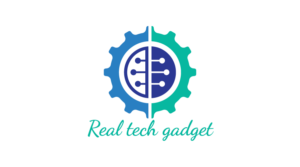Customer relationship management (CRM) systems have become essential resources for managing relationships with stakeholders, healthcare professionals, and patients in the changing environment of the pharmaceutical sector. Pharmaceutical firms can streamline their operations and succeed in a highly regulated environment by implementing a customized CRM solution to improve productivity, compliance, and client interaction. The most important factors and features to look for when choosing the Best Crm for Pharmaceutical Companies are covered in this guide.
Knowledge of CRM’s Importance for Pharmaceutical Companies
Pharmaceutical firms must build solid ties with medical experts at a time when personalization and precision are crucial. Thanks to a powerful CRM system, these businesses can track interactions, deliver customized information, and modify plans based on real-time insights. A customized CRM can smoothly combine various operations, from managing product launches to recording negative incidents, assuring industry compliance.
Key Things to Think About When Choosing a CRM
- Data Security and Compliance:Strict regulatory frameworks exist for the pharmaceutical industry. A trustworthy CRM must follow industry regulations like HIPAA and GDPR to guarantee the secure handling of private patient and clinical data.
- Customization:Each pharmaceutical company has specific needs and work processes. A CRM should be adaptable enough to meet these particular requirements, enabling the creation of custom fields, data kinds, and reporting.
- Integration capabilities:A CRM should be able to effortlessly integrate with other technologies, such as ERP systems, marketing automation platforms, and analytics tools, to enhance productivity. This connectivity makes it easier for data to move between departments, which improves decision-making.
- Mobile Accessibility:Field agents and sales personnel require mobile access to CRM data. Important information is always accessible with a CRM that has an intuitive mobile app.
- Analytics and Reporting:Accurate insights are necessary for making informed decisions. Advanced analytics and reporting capabilities in a strong CRM should supply information that can be used to improve marketing tactics and monitor sales effectiveness.
- Effective communication uses a variety of channels or multi-channel communication. To communicate with healthcare professionals using their preferred channels, look for a CRM that supports email, social media, and even telephonic integrations.
Features a Pharmaceutical CRM Must Have
- Targeting and segmentation:It’s crucial to tailor communications to particular audiences. A CRM should provide complex segmentation based on medical specializations, prescribing patterns, and geographic location.
- Pharmaceutical companies frequently give samples to medical practitioners as part of their sample and inventory management. A CRM may simplify inventory tracking, ensuring sample distribution rules are followed.
- KOL Management:Key Opinion Leaders (KOLs) are essential in the pharmaceutical sector. It should be easier to find, develop, and collaborate with KOLs when using a CRM.
- Monitoring compliance:Adhering to industry regulations is a need. A Crm for Pharmaceutical Industry should provide audit trails, data encryption, and permission-based access to guarantee data integrity.
- Workflow automation can be used to streamline repetitive tasks. Automation improves efficiency and lowers errors, from sending follow-up emails to monitoring post-event activity.
Conclusion
Precision, innovation, and compliance are essential to the pharmaceutical industry’s success. A wisely chosen CRM can act as a motivator to accomplish these objectives. Pharmaceutical organizations can choose a CRM solution that fits their requirements by carefully assessing customization, integration, security, and compliance. The correct CRM may enable pharmaceutical firms to succeed in their objectives, whether boosting client interactions, optimizing sales methods, or guaranteeing adherence to regulations.

